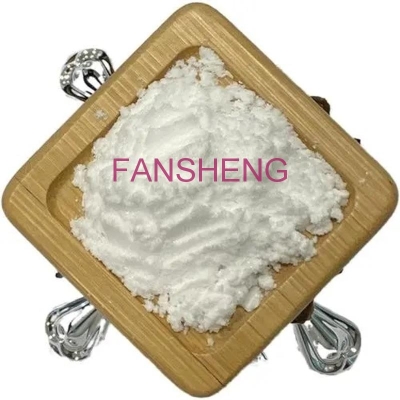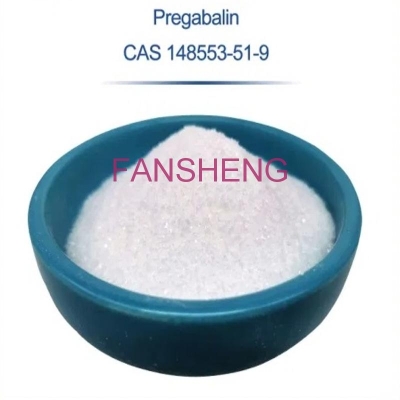EMBO J . . . The team revealed the mechanism seisylynust polymerase in maintaining neuronal microtubule polarity and dendrite shear.
-
Last Update: 2020-07-21
-
Source: Internet
-
Author: User
Search more information of high quality chemicals, good prices and reliable suppliers, visit
www.echemi.com
During the development of the nervous system, neurons selectively clear their redundant dendrites or axons, which is very important for the development of the nervous system, known as neural pruning.in the development of human brain, if there is a problem of nerve cutting, it may lead to some cognitive impairment, such as autism.in addition, since the process of nerve cutting is very similar to the process of axon / dendrite degeneration in neurodegenerative diseases or spinal cord injury, it is of potential significance to study the mechanism of nerve shearing for our understanding of Parkinson's disease, Alzheimer's disease and other diseases.in the peripheral nervous system of Drosophila melanogaster, there is a kind of pain sensing ddac neurons, and specific dendrite pruning occurs in the early stage of pupation (0-16 h APF).at the late stage of pupation (& gt; 24 h) APF), dendrites will grow again and form adult specific dendrite structure.this phenomenon provides an excellent model system for the study of neural remodelling.Fig. 1. Dendrite shearing process of ddac neurons in Drosophila melanogaster has been systematically studied in the early pupation stage of Drosophila using the Drosophila model.successively discovered the genetic and epigenetic mechanisms regulating the process of dendritic shearing (kirilly, et al., Nature Neuroscience, 2009; kirilly, et al., neuron, 2011), protein degradation pathway and its target proteins (Wong, et al., PLoS Biology, 2013; Zhang, et al., developmental cell, 2014; Zong et al., PLoS Biology, 2018), Regulatory factors of secretory pathway (Wang, et al., development, 2017, 2018).this series of influential findings laid the foundation for the development of dendrite shearing in Drosophila (see the review article Yu et al., current opinion in neurology 2014).in 2019, our laboratory found that the microtubule negative binding protein patronin / camsap plays a key role in regulating microtubule polarity and dendrite shearing (Wang et al., eLife 2019; Rui, Ng et al., EMBO Rep. 2020), thus opening a new field to study the role of microtubule polarity in dendrite shearing.microtubule is a highly dynamic cytoskeleton formed by the polymerization of α and β tubulin dimers, which is essential for maintaining the morphology of neurons and material transport.one end of the exposed β - tubulin is a highly dynamic positive pole, while the other end of α - tubulin is a relatively stable negative pole.in the mature ddac neurons of Drosophila melanogaster, microtubules in axons and dendrites were uniformly positive and outward.compared with Drosophila neurons, the dendrites in mammalian neurons contain the same number of positive and negative microtubules. However, the molecular mechanism of microtubule polarity remains to be explored.during the process of dendrite shearing of ddac neurons, microtubule deconstruction in dendrites preceded the dissolution of cell membrane.for more than 10 years, researchers in this field generally believe that microtubule cleavage enzyme or depolymerization enzyme can promote microtubule depolymerization, thus leading to smooth dendrite shearing.however, there has been no experimental evidence to support this seemingly correct view.the known microtubule cleavage enzymes (katanin, spastin, fidgetin) and microtubule depolymerization enzymes (klp10a / kinesin-13) in Drosophila did not promote dendrite cleavage although they could depolymerize microtubules.these gene deletions or RNA interference did not significantly inhibit dendrite splicing.therefore, the role of microtubule polymerase / depolymerization in the process of dendrite cleavage has not been elucidated.recently, a microtubule polymer is required for microtubule orientation and dendrite pruning in drophila published by Yu Fengwei Laboratory of Temasek Institute of life sciences in Singapore in EMBO journal. It is the first time to report the important role of microtubule polymerase complex in maintaining microtubule polarity and dendrite pruning in dendrites.this work has laid a foundation for us to understand the development of human nervous system and neurodegenerative diseases.in this project, in order to find the genes that regulate dendritic shearing, researchers conducted a large-scale genetic screening and found the gene locus encoding the microtubule polymerase MSPs (Mini spindles) / XMAP215 / CH tog.in DAPC neurons with MSPs mutation, dendrite shearing cannot be completed.at the same time, using CO IP technology, the researchers found that TACC (transforming acidic coiled coil) interacted with MSPs protein in neurons.and in TACC mutant neurons, dendrite shearing was also defective.this indicates that MSPs TACC, as a microtubule polymerase complex, is indispensable in the process of dendrite shearing. However, the decrease of microtubules was not the cause of inhibition of dendrite shear.interestingly, the researchers found that the deletion of MSPs and TACC caused significant changes in the polarity of neuronal microtubules.using the microtubule positive marker eb1-gfp, the researchers detected that the direction of microtubules in the MSPs and TACC mutant neuronal dendrites was no longer uniform, but chaotic.researchers reported for the first time that the MSPs TACC microtubule polymerase complex can not only aggregate microtubules, but also regulate the polarity direction of microtubules.as a microtubule polymerase, MSPs have antagonistic effect with microtubule depolymerizing enzyme klp10a. The researchers speculate whether MSPs can maintain the uniformity and stability of microtubule polarity by antagonizing klp10a, and further regulate dendrite shearing.therefore, they used RNA interference to reduce the expression of MSPs and klp10a simultaneously. The results showed that the polarity of microtubule returned to the uniform negative pole outward, and dendrite shearing still occurred normally.Figure 2. The relationship between microtubule polarity and dendrite shearing in dendrites. Finally, the researchers hypothesized whether excessive microtubule deconstruction in neurons can change microtubule polarity and prevent dendrite shearing. thus, the microtubule cleavage enzyme katanin60 was overexpressed, or colchicine or vinblastine, which promoted the depolymerization of microtubules, was used to simulate the over expression of microtubule cleavage. in line with the hypothesis, excessive microtubule deconstruction can indeed change microtubule polarity in neurons and inhibit dendrite shearing. these results are consistent with the phenotypes of MSPs and TACC mutants. based on this, the researchers believe that the deletion of MSPs and TACC leads to the excessive depolymerization of the microtubule depolymerization enzyme klp110a at the positive electrode of microtubule, which may result in a large number of short and free microtubule fragments; these microtubule fragments may be reoriented in the dendrites, thus regenerating the microtubule structure with the positive electrode outward, and hindering the normal dendrite shearing. this research of senior researcher Yu Fengwei completely overturns the seemingly correct view in the field of dendrite shearing in the past 10 years, and provides a new idea and direction for the study of microtubule polarity and cleavage of dendrites. Dr. Yu Fengwei believes that since the microtubule polymerase MSPs / XMAP215 / CH tog is a highly conserved protein in animals and plants, this research result may also be applicable to different types of species and cells, and has universal research significance. original link:
This article is an English version of an article which is originally in the Chinese language on echemi.com and is provided for information purposes only.
This website makes no representation or warranty of any kind, either expressed or implied, as to the accuracy, completeness ownership or reliability of
the article or any translations thereof. If you have any concerns or complaints relating to the article, please send an email, providing a detailed
description of the concern or complaint, to
service@echemi.com. A staff member will contact you within 5 working days. Once verified, infringing content
will be removed immediately.







